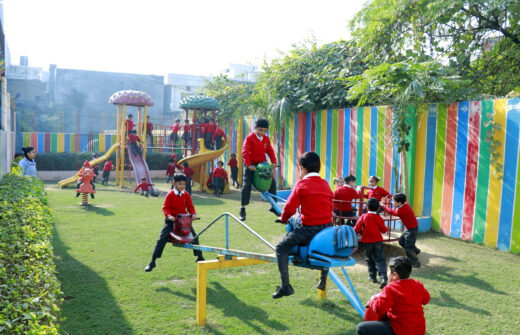
In today’s interconnected and multicultural world, bilingual education has become increasingly valuable. By fostering proficiency in two or more languages, bilingual education programs equip students with essential skills that go beyond communication. This blog post delves into the benefits of bilingual education and why it’s a crucial component of modern education.
Why Bilingual Education Matters
1. Cognitive Advantages
Bilingual education offers significant cognitive benefits. Research has shown that students who are proficient in multiple languages tend to have better problem-solving skills, enhanced memory, and greater cognitive flexibility. Learning a second language requires the brain to switch between languages, which strengthens cognitive abilities and improves multitasking skills.
2. Academic Achievement
Bilingual students often outperform their monolingual peers academically. Studies have found that bilingualism enhances reading skills, vocabulary, and comprehension in both languages. Moreover, bilingual education can lead to higher scores on standardized tests, as it promotes critical thinking and analytical skills.
3. Cultural Awareness and Sensitivity
Bilingual education fosters cultural awareness and sensitivity. By learning another language, students gain insights into different cultures, traditions, and perspectives. This cultural competence is essential in our diverse world, helping students develop empathy and understanding toward people from various backgrounds.
4. Enhanced Career Opportunities
In an increasingly globalized job market, bilingual individuals have a competitive edge. Many employers value employees who can communicate effectively in multiple languages. Bilingualism opens doors to a wider range of career opportunities, both domestically and internationally, in fields such as business, diplomacy, healthcare, and education.
5. Social and Emotional Benefits
Bilingual education also provides social and emotional benefits. Bilingual students often have improved communication skills, which enhance their ability to interact with peers and adults. Additionally, learning a new language boosts self-esteem and confidence, as students master new skills and overcome language barriers.
Key Components of a Successful Bilingual Education Program
1. Qualified and Trained Educators
Effective bilingual education programs require qualified and trained educators who are proficient in both languages and have expertise in bilingual teaching methodologies. These educators play a vital role in creating a supportive and engaging learning environment.
2. Immersive Learning Environment
An immersive learning environment is crucial for bilingual education. Students should be exposed to both languages in various contexts, including classroom instruction, social interactions, and extracurricular activities. Immersion helps students develop language proficiency naturally and authentically.
3. Culturally Relevant Curriculum
A culturally relevant curriculum enhances bilingual education by integrating cultural content and perspectives into the learning process. This approach fosters cultural awareness and appreciation, making language learning more meaningful and engaging for students.
4. Parental and Community Involvement
Parental and community involvement is essential for the success of bilingual education programs. Engaging parents and the community in the learning process creates a supportive network that reinforces language learning and cultural understanding.
Choosing the Right Bilingual Education Program
Selecting the right bilingual education program for your child is a crucial decision. Here are some factors to consider:
- Program Model: Research different bilingual education models, such as dual-language immersion, transitional bilingual education, and two-way immersion, to determine which best suits your child’s needs.
- School Reputation: Look for schools with a strong reputation for academic excellence and bilingual education. Consider visiting the school and speaking with educators and parents to gain insights into the program’s effectiveness.
- Language Support: Ensure the program provides adequate support for both languages, including resources, materials, and additional language instruction if needed.
- Cultural Enrichment: Choose a program that incorporates cultural activities and events, promoting a deeper understanding of the languages and cultures being taught.
Invest in Your Child’s Future with Bilingual Education
Bilingual education is an investment in your child’s future, providing cognitive, academic, social, and career benefits. By fostering language proficiency and cultural awareness, bilingual education prepares students for success in a globalized world.
For more information on the advantages of bilingual education and how to choose the right program for your child, visit [insert website link] or contact us at [insert contact details]. Empower your child with the gift of bilingualism and open the door to endless opportunities.



Leave a Reply